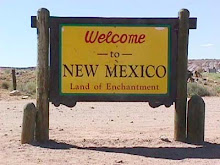I had posted earlier about my difficulty with this month's reading of William Bridge's A Lifting up for the Downcast. While I am back on track, this has only been due to the fact that I sat down and marked up my book, dividing it into segments for each day, and have then forced myself to complete each day's assignment.
Note that my difficulties in staying on track have been twofold:
1) Every page provokes thoughtful consideration, and
2) The language is typically 17th century, and archaic.
Yet, as I told my wife a couple of weeks ago, the reading gets easier once you recognize that this book is a collection of sermons, and that Bridge writes as he must have delivered these messages. Bridge writes something like this: The cat is in the house. That cat is securely in the house. That black cat is firmly ensconced in the yellow house, the yellow house with a white fence. Yes, the cat is in the house. That might be somewhat exaggerated, but look at the following actual example:
If Christ therefore forsakes His people for a moment, that He may not forsake them for ever, and has a design of love, and nothing but love, upon them in His forsaking; then have they no just cause for their discouragement. Now I ask, what is the reason why God forsakes His people for a time, or a moment? Has He any design but love? Does he not withdraw Himself from them, that he may draw them to Himself? Does He not hide His face for a moment, that He may not turn His back upon them for ever? Does He not forsake them for a moment, that they may die unto all the world, and long after heaven, where there is no forsaking? Does He not forsake them for a moment, that they may die unto the way of sense, and learn to live by faith, which is the proper work of this life? Does He not forsake them for a moment, that in this winter of their desertion, the weeds and vermin of their sins may be killed and mortified? Does He not forsake them for a moment, that He may see their love to Him? In the time of His presence we have the sense of His love to us; but in the time of His absence, then He sees, and we ourselves have the sense of our love to Him. Does He not therefore foresake them for a moment, that their very joys and comforts may be more fervent, exalted and enlarged? It is our nature to rejoice most in a comfort, when it is redeemed from the hand of death, and recovered after being lost. (pg. 176-177, emphasis added)
Note the repetition, building to a crescendo. Once you discern his cadence, his rythm, then, at least to me, it is easier to read this work.
Remember, you have only 10 days left to register for the opportunity to win Meet the Puritans.
Subscribe to:
Post Comments (Atom)


1 comment:
It reminds me of D. Martyn Lloyd-Jones. He states, repeats, restates, expands, revisits, but once you get used to it, it's a marvelous way of getting a truth deep into your brain!
Post a Comment